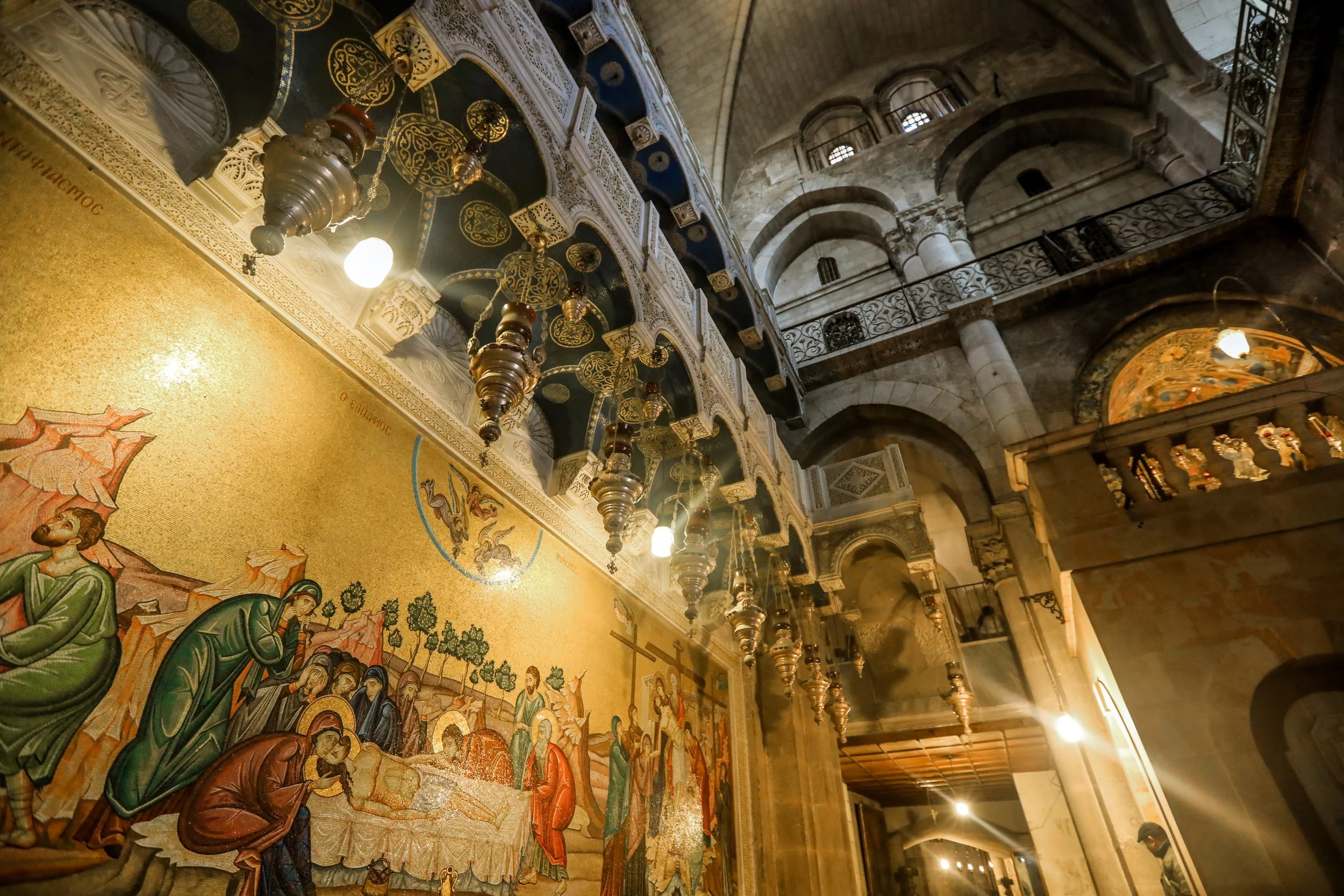We Need to Talk About Mary
As Protestants, we almost never talk about Mary, which is odd given that we have no problem extolling the virtues of King David or the apostle Peter, whose spiritual track records are considerably more checkered, to say the least. We might make an exception during Christmas, but only because she’s an unavoidable part of the story. But even then, we rarely pay much attention to her. For us, her value is merely instrumental – as if she exists only to move the plot along. She is relegated to the background of the nativity scene, another silhouette among the shepherds and angels and sheep and hay. (Of course, none of this is much of a surprise coming from a tradition that, until recently, didn’t even want to talk about Jesus at Christmas time!)
Now, anyone with even an ounce of church-history knowledge knows why we are like this. Our reticence about Mary is part of the theological baggage we inherited from the Reformation. What began as a critique about very particular 15th century habits and ideas gradually hardened into dogmatic condemnation. Out of fear that Mary was getting too much credit for her role in salvation history, we decided to give her none. Among us, there must not even be a hint of devotion to Mary.
In the end, we might not have thrown the baby out with the bathwater, but we do seem to have thrown out the baby’s mother. And in doing so, I think we’ve lost quite a bit.
May Your Word to Me Be Fulfilled
Even if we consider nothing else, Mary is spectacular merely as an exemplar of faith.
An angel shows up and tells her she will give birth to the Son of God. She responds by asking one (very legitimate) question concerning logistics: “How can this be since I am a virgin?” And after receiving the angel’s fairly vague response, I personally would have had a few follow-up questions. But she simply says, “I am the Lord’s servant; may your word to me be fulfilled.”
She gets this incredible invitation from God, and she simply receives it. She entrusts herself and her future to God. She says, “yes.”
And it is not as if this was an easy “yes.” This is a “yes” that will have consequences. To start with, there would be the risk of pregnancy and delivery in a world where both maternal and infant mortality were incredibly common. Then there would be the responsibility of motherhood itself – the mundane but extraordinary effort it takes to keep children alive and to raise them. On top of that, there would be the potential fallout with Joseph, who almost calls off their engagement because of her pregnancy. And then there would be the social cost, the inevitable rumors and side-eyes and ostracization from people she knows. This is not an easy “yes.”
But she says that “yes” anyway. And that alone is a gift to us. In her, we see someone who was willing to utterly and unreservedly yield themselves to God. Her son would one day pray, in the garden of Gethsemane, “Not my will but yours be done.” And it is fitting that He was able to come into this world because his mother was willing to say essentially the same thing.
Mary’s Consent
But Mary’s gift to us, and her contribution to our salvation, is more significant than just her example. Because it is through her “yes” that God is born into the world in human flesh.
Which means that God needed her consent and cooperation.
That says something, not only about the depth of Mary’s faith, but also about the character of God. God was not willing to force himself onto us. God refuses to coerce or control or supersede us. Because that’s not how love works! It cannot be taken or forced or compelled. It has to be freely given. So, God waits for Mary’s “yes.”
Which is huge. God created our flesh, but he refused to take our flesh – he would only receive it. And so, Mary gave back to God what he had made.
This, by the way, is the essence of salvation. Salvation is just giving what God has made back to Him.
That is exactly what Christ came to do. What sin and death had stolen from God, Christ re-confiscated and returned to Him. Human beings were like a lost puppy on the side of the road; death and sin came along and picked us up, and took us back to Satan and said, “Can we keep them?” And Satan said, “Of course!” But a few days later (if we continue the analogy), Jesus showed up and said, “Actually, I’m the owner; they belong to me, and you are going to have to give them back.”
Christ had to take on our flesh so that he could give all flesh back to God. And it was Mary’s flesh, it was her body, it was her humanity, that became the doorway to God’s entrance into our flesh, our bodies, our humanity.
She gave God the gift that allowed him to give us the gift of salvation. That’s why Anselm of Canterbury described Mary as “the mother of all re-created things.” Because she said “yes” to God. And by doing so, she freely gave God’s own creation back to God so that he might make all things new in and through His Son.
Thanks be to God.







